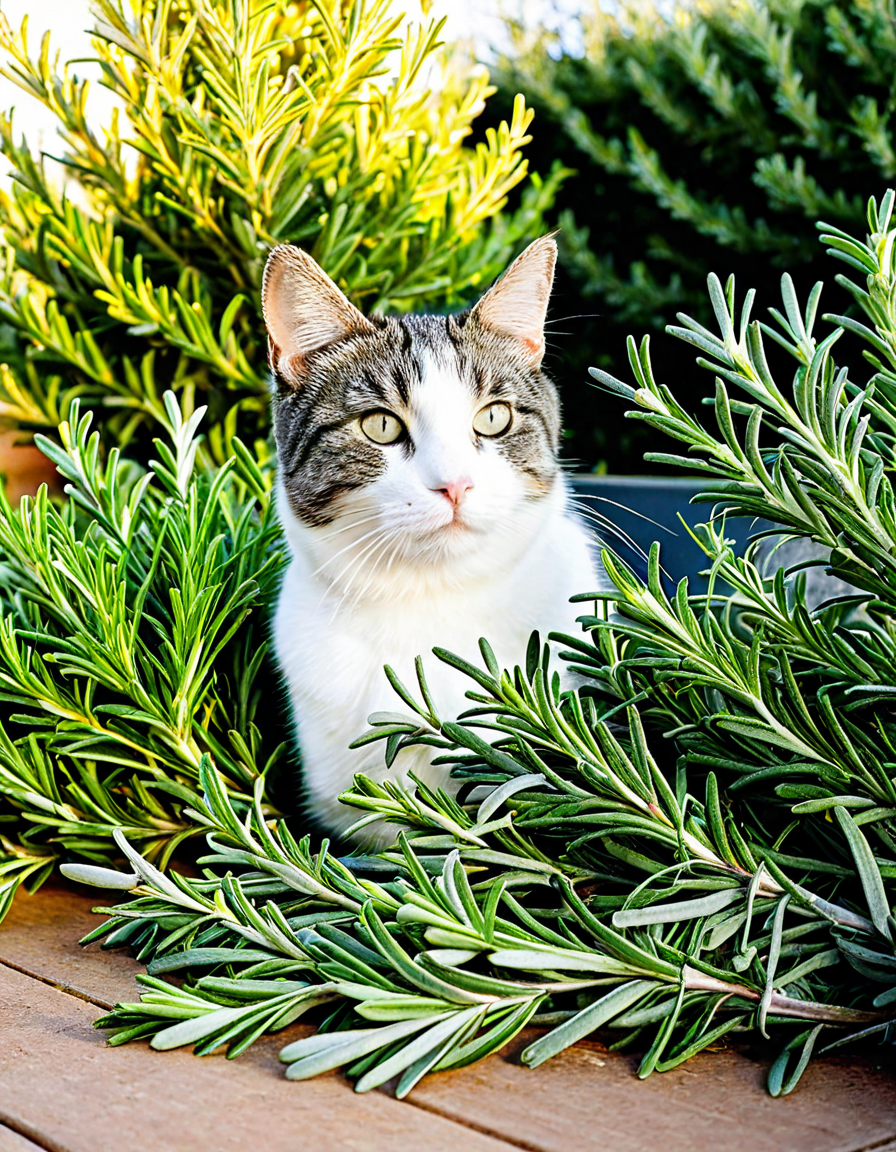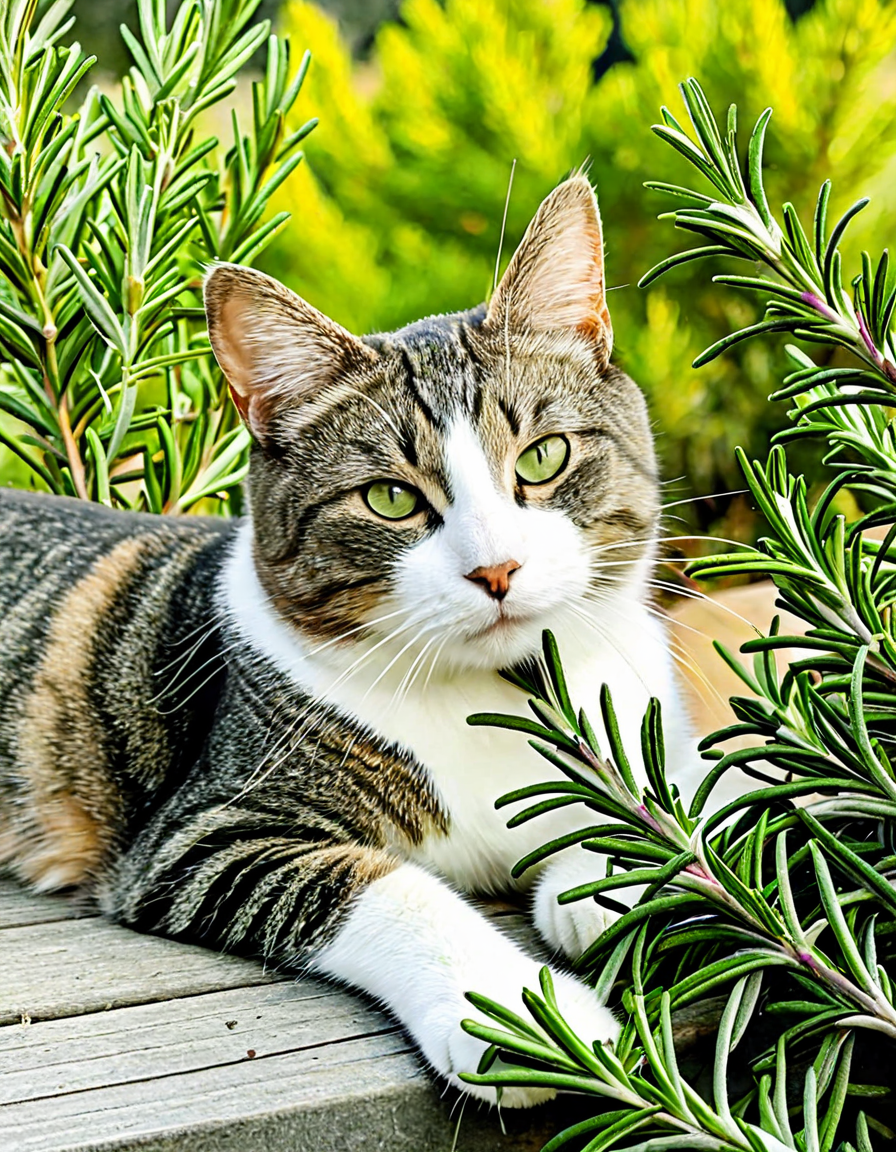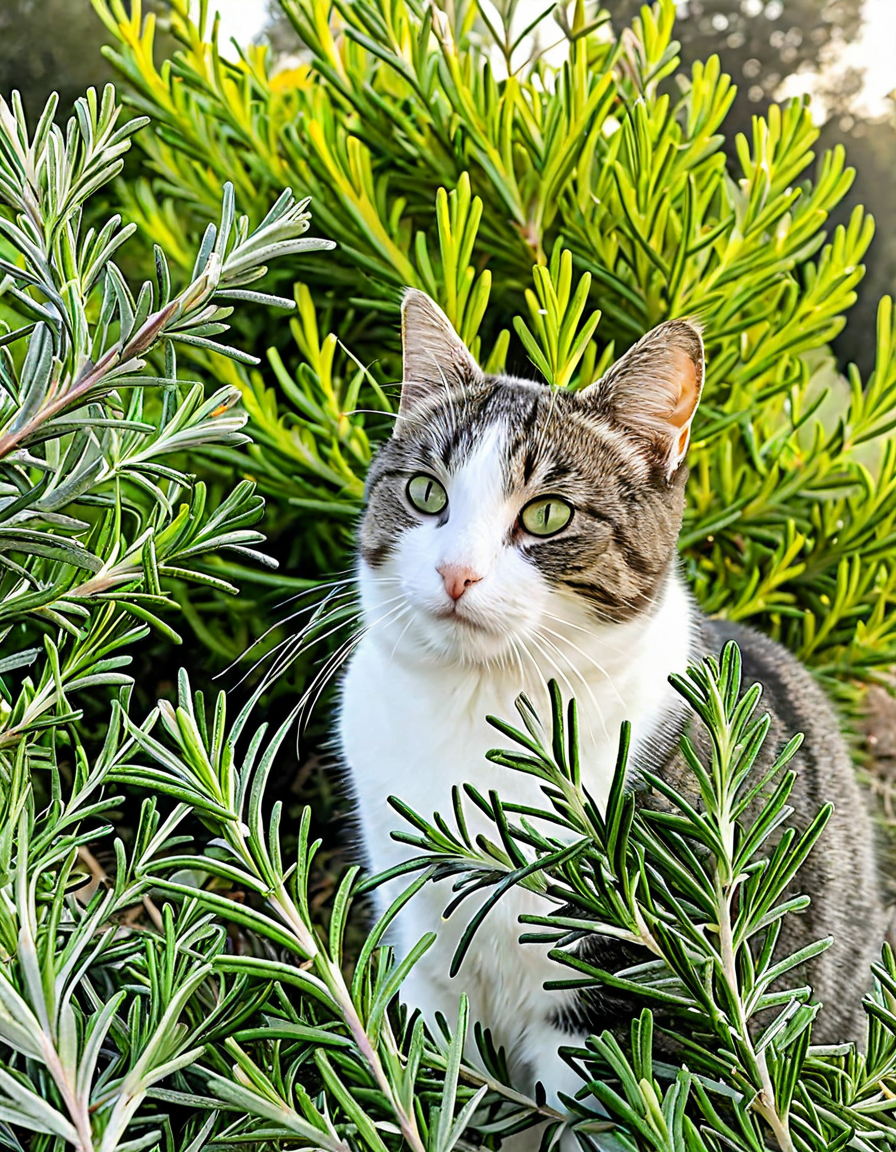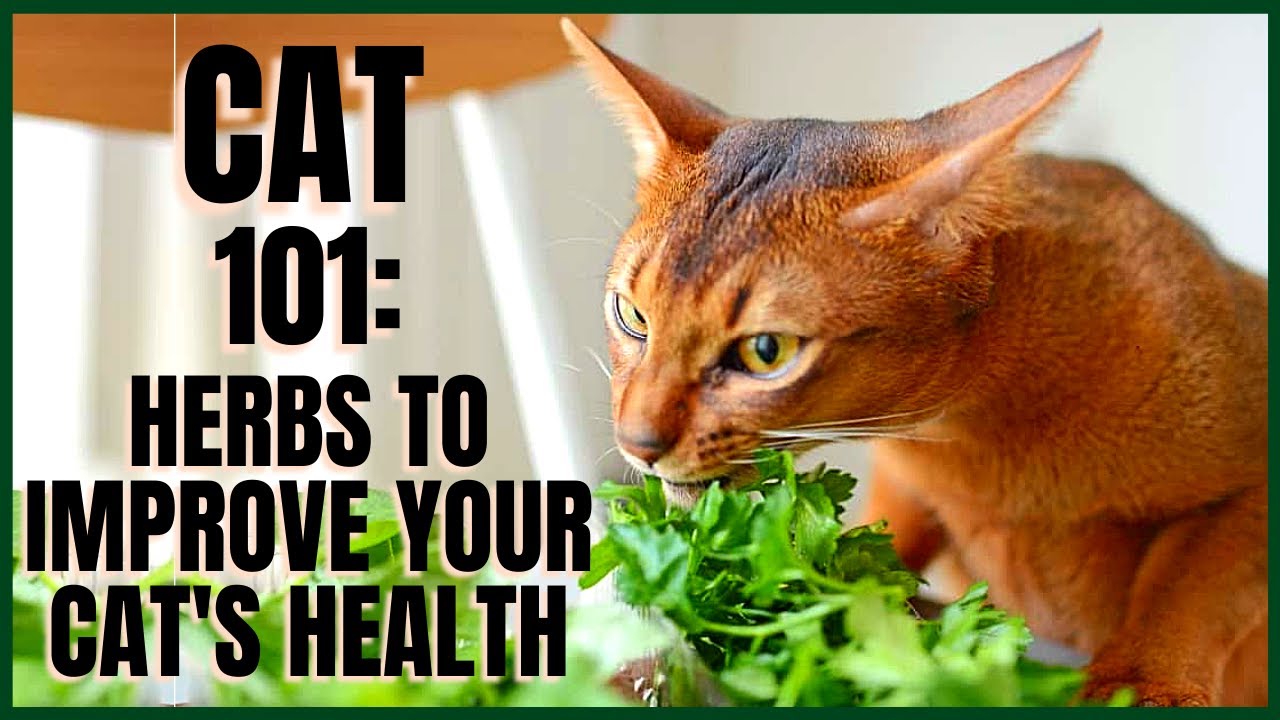As a cat owner, it’s essential to understand what foods are safe for your feline friend. Among the myriad of herbs, rosemary stands out, often raising the question: can cats eat rosemary safely? This article delves into the nutritional aspects, potential health benefits, and risks associated with feeding rosemary to cats, alongside exploring their relationship with other foods. So, let’s break it down and get to the bottom of this herbal curiosity!
The Nutritional Profile of Rosemary for Cats
Herbal Components
Rosemary is known for its vibrant flavor and aroma, which many humans enjoy. It contains antioxidants and anti-inflammatory properties that can support overall health. However, it’s worth noting that the strong flavor of rosemary could be off-putting for some cats. Unlike their humans, who might delight in the herb’s distinct taste, cats have their preferences—often favoring meat over herbs.
Vitamins and Minerals
This herb’s nutritional value is not to be overlooked. Rosemary boasts vitamins like C and A, alongside minerals such as calcium and iron. Yet, it’s crucial to remember that the quantities found in rosemary are not significant enough to fulfill a cat’s dietary needs. Cats thrive on high-quality proteins, as obligate carnivores, which makes herbal supplementation somewhat redundant when it comes to their core nutrition.
Digestive Properties
Some proponents of herbal diet diversifications argue that rosemary may assist with digestion due to its natural compounds. However, let’s not forget that cats are primarily meat-eaters. Their digestive systems are finely tuned to process proteins. While a sprinkle of rosemary might seem like a good idea, it’s important to prioritize their protein intake.

The Safety Debate: Can Cats Eat Rosemary?
Potential Risks
The conversation around can cats eat rosemary often leads to safety concerns. Although rosemary is generally considered non-toxic to cats, overconsumption can lead to gastrointestinal issues, like vomiting or diarrhea. Cats metabolize substances differently than humans, meaning that even herbs can cause adverse effects if taken in excess. A little rosemary might be safe, but moderation is essential.
Toxicity Properties
The good news is that rosemary doesn’t pose a direct threat when ingested in small amounts. Unlike other common plants or herbs that are harmful, rosemary is relatively safe. But don’t let your guard down completely; if your cat is prone to digestive sensitivities, it’s wise to monitor their intake closely. That’s especially true when adding new foods into their diet.
Usage in Foods
Many human foods contain rosemary, often as a seasoning. It’s found in roasted meats, marinades, or even some commercial pet foods. Understanding how it’s integrated into these dishes is crucial, especially with curious cats that may nibble on your dinner. Always be cautious and read labels to avoid unintentional overconsumption of any herb.
Common Questions: Can Cats Eat Other Foods?
Besides rosemary, owners frequently wonder about the safety of other foods for their furry companions. Let’s explore some common inquiries.

Related Provisions: Can Cats Enjoy Chicken and Other Meats?
Can Cats Eat Chicken?
Cooked, prepared chicken is a fantastic source of protein and highly palatable for cats. Many commercial cat foods list chicken as a primary ingredient due to its digestibility and taste. This makes chicken a staple for many feline diets.
Can Cats Eat Raw Chicken?
While some owners choose to venture into raw diets, caution is key. Raw chicken poses risks of salmonella or bacterial contamination, so proper handling is crucial. Consult with a veterinarian before considering this as part of your cat’s diet.
Unique Insights on Rosemary and Feline Diet
Fresh vs. Dried Rosemary
There’s a notable difference between fresh and dried rosemary. Fresh rosemary might offer your cat a different set of benefits, such as support for dental health through natural abrasion while they chew. However, the flavor may still turn them off.
Holistic Approaches
Some pet owners incorporate rosemary into homemade cat treats, providing a balanced take on human foods. Mix with cat-friendly ingredients to create an enticing snack, but always check compatibility with a veterinary professional before adding new items.
Behavioral Aspects
Interestingly, cats might show initial interest in the smell of rosemary, but many are likely to turn away after a nip or two. Recognizing your cat’s preferences helps you make better dietary choices in line with their tastes.
Exploring Alternatives: Safe Herbs for Cats
Catnip and Cat Grass
Unlike rosemary, catnip and cat grass are fantastic additions to your cat’s diet. They are safe and can even promote better digestion and relaxation. Most cats adore them!
Basil and Parsley
Basil and parsley offer beneficial nutrients for cats too! Still, remember that moderation is essential for any herb. They should complement a proper diet but not substitute it.
Wrapping Up the Herbaceous Journey
To wrap things up, can cats eat rosemary? Yes, but with a hefty dose of caution and moderation. While small amounts may not harm your cat, rosemary isn’t necessary for their diet. Understanding what foods benefit your furry friend is crucial to ensuring their optimal health. Each culinary exploration allows for a richer, healthier life for your beloved pet—prioritize their needs and choose wisely!
Can Cats Eat Rosemary?
When pondering the culinary curiosities of our feline friends, you might wonder, “Can cats eat rosemary?” While rosemary isn’t toxic to cats, it’s not a go-to herb for their diets either. Instead, think of rosemary as more of a culinary companion than a cat food staple. Speaking of intriguing food facts, you might find it fascinating that cats are obligate carnivores, meaning they heavily rely on meat for nutrition. Just like how some humans have developed unique tastes over time, like following the eccentric life of figures like Carl Sagan, our furry companions also have their distinct preferences.
Culinary Companionship
Like many herbs, rosemary has some health benefits, but they can be minimal for our cat buddies. In fact, while fresh rosemary may be safe, dried forms of herbs can sometimes pose a choking hazard due to their texture. It’s always wise to stick to vet-recommended foods, especially if you’re considering adding any herbs to their diet — after all, just like you wouldn’t freely give your pet adult ball python foods that aren’t suitable, the same applies to cats. And hey, if your kitty seems intrigued by plants, you might also want to check if they can eat other herbs safely, such as mint. Curious about if cats can eat mint? Find out here!
Herb Enthusiast Habits
Interestingly, the ancient Romans used rosemary for memory enhancement, believing the herb could improve brain function, much like the way some look up to historical figures like Empress elisabeth Of Austria for inspiration. For pet owners thinking about introducing fresh herbs into their cats’ lives, it’s best to limit their exposure solely to safe options. Plus, while rosemary scent can be pleasant, some cats may have strong reactions to certain fragrances. This goes to show how each species interacts with flavors and scents — just like how fruit is sometimes a treat for other animals, as seen with the question of whether rabbits can eat mango.
So, can cats eat rosemary? The answer leans towards moderation. A little sprig here and there won’t hurt, but sticking to their primary cat food, especially renal cat food if your pet has dietary needs, is a smart choice. Always remember, keeping an open hand with spices can be enriching, but a close eye on your pet’s reaction to any new addition is crucial.






